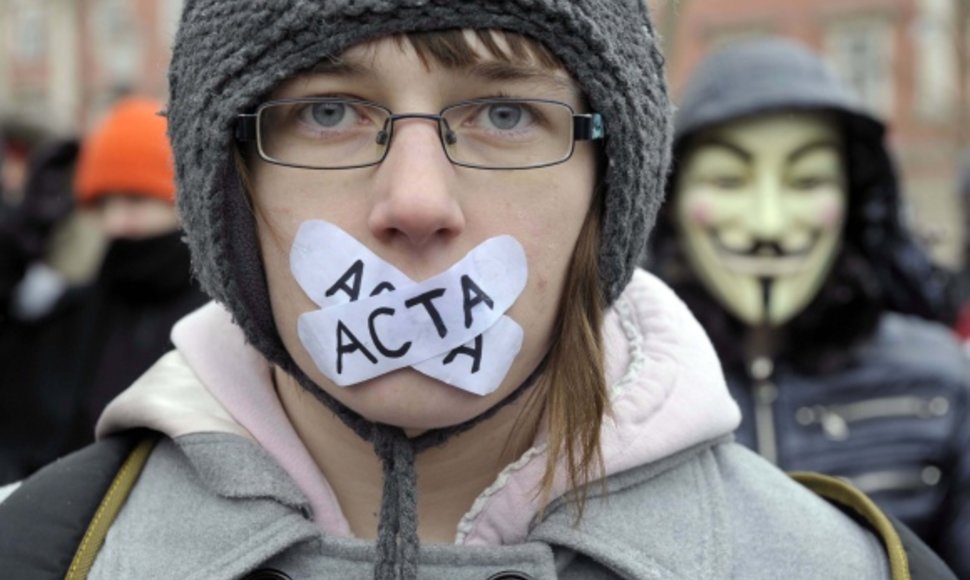He emphasized the need to ascertain the "commitments for providers of Internet services to perform certain spying, let's put it simply, of people."
"The agreement, although it is of abstract character and can be implemented in different ways, contains aspects that seem unacceptable. (...) I believe they require thorough analysis and I am far from being convinced that the proposed model is necessary and only includes positive things," the minister told journalists on Friday.
In his words, ACTA should be discussed in the Parliament. Furthermore, Šimašius expressed agreement to the views that certain aspects of intellectual property protection could curb scientific development.
"Mankind is using various technologies more and more, and when those technologies are held exclusively in the hands of certain companies and cannot be developed further or can only be used in restricted ways, it definately limits opportunities for wider groups to use the technologies and even inhibits scientific development," Šimašius added.
On Thursday, Parliamentary froup of oppositional Order and Justice Party announced its plans to try and prevent the Parliament from ratifying the controversial agreement.
The Lithuanian union of farmers and greens has also come out against ACTA, saying the document could potentially open the door for growing genetically-modified organisms (GMO) in Lithuania. The party announced plans to attend the Saturday's rally against the treaty in Vilnius.
The Anti-Counterfeiting Trade Agreement was signed by the United States, Canada, Australia, New Zealand, Japan, Singapore, Morocco and South Korea in October 2011.
The European Union (EU) and its member-states did not sign the agreement then, certain internal EU procedures were in order. On January 26, 22 member-states of the community, including Lithuania, signed the document on behalf of the organization. Lithuania's Foreign Ministry said the agreement would develop an international system that would enable efficient effort against violations of intellectual property rights.
The document has triggered mass protests in Lithuania's neighbor Poland. A series or protest actions are planned in a number of countries, including Lithuania, on Saturday.












